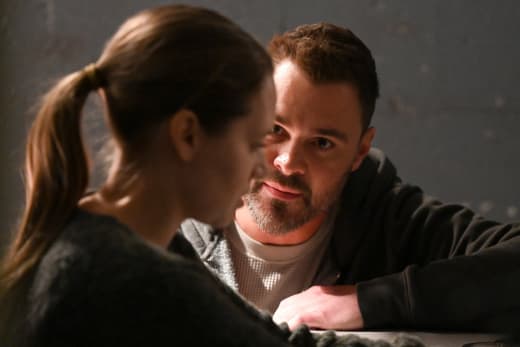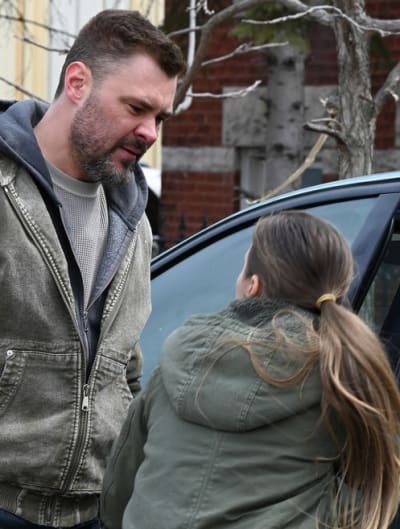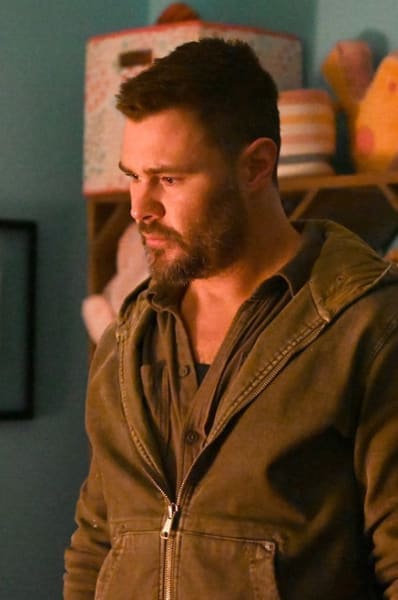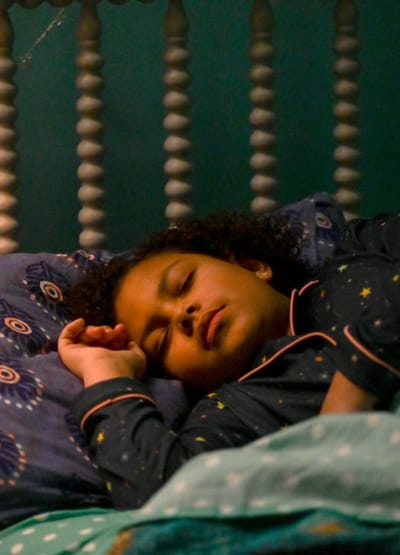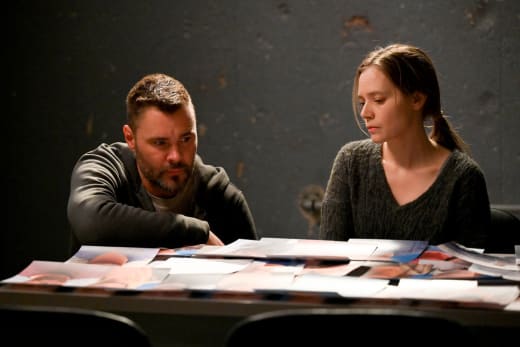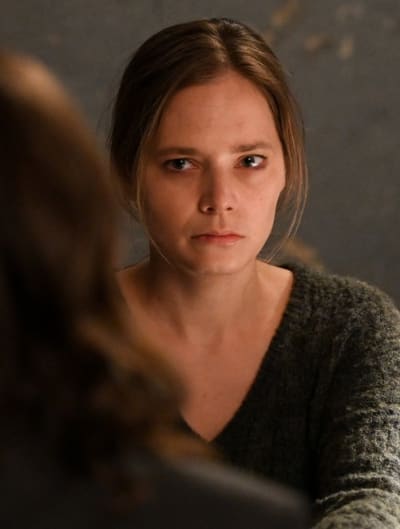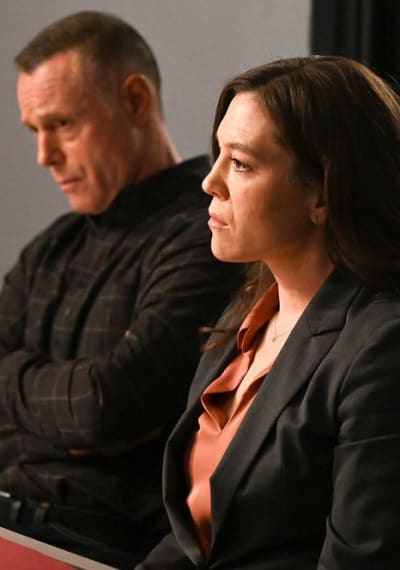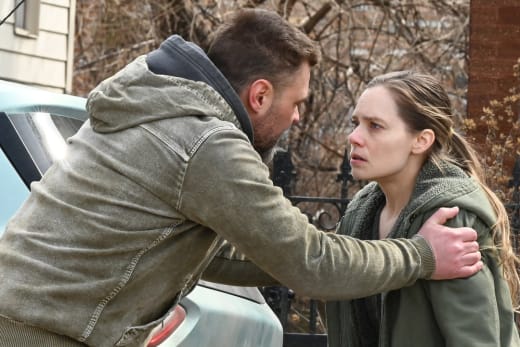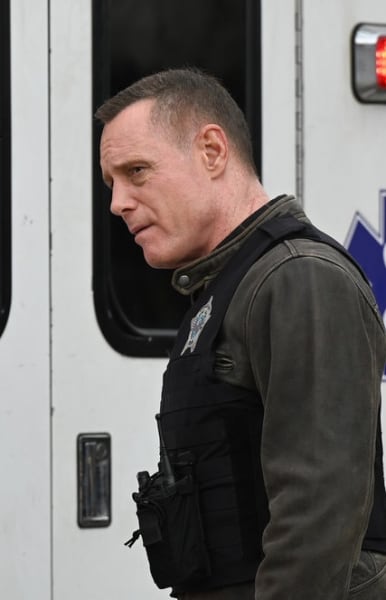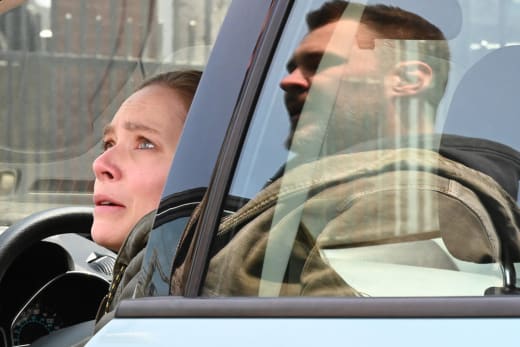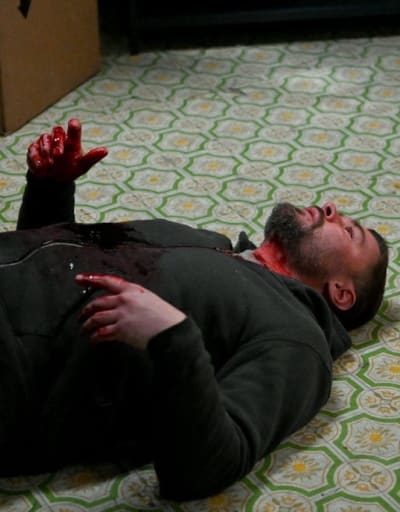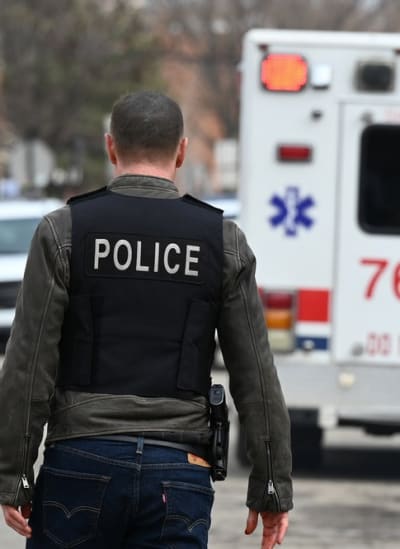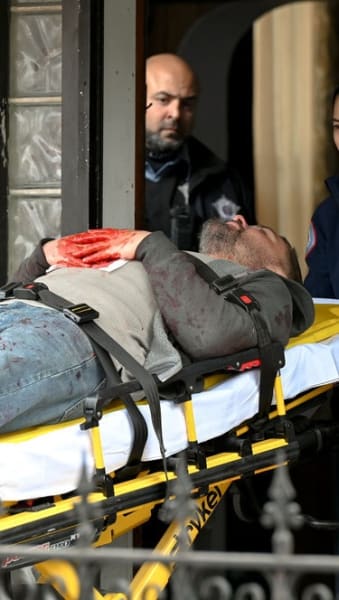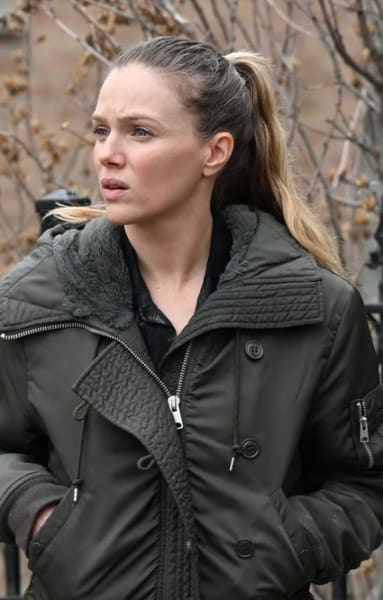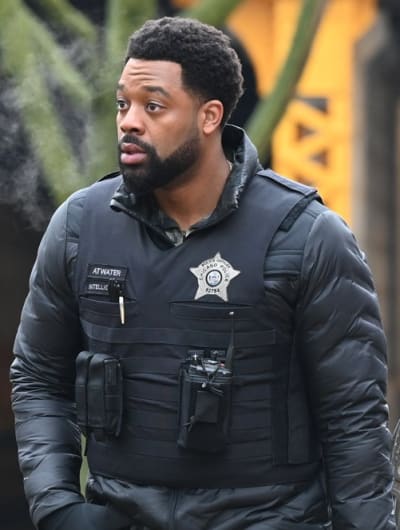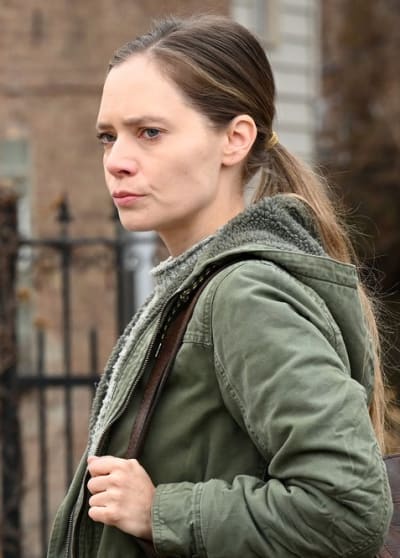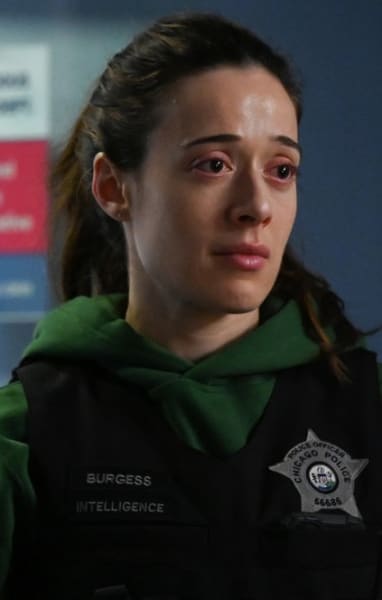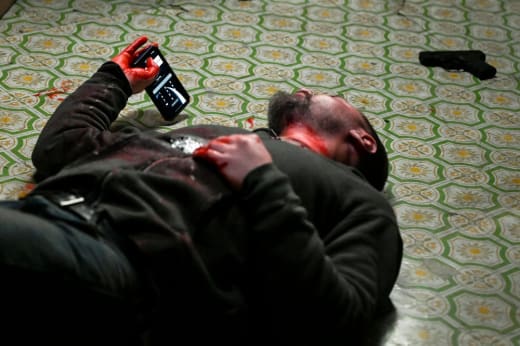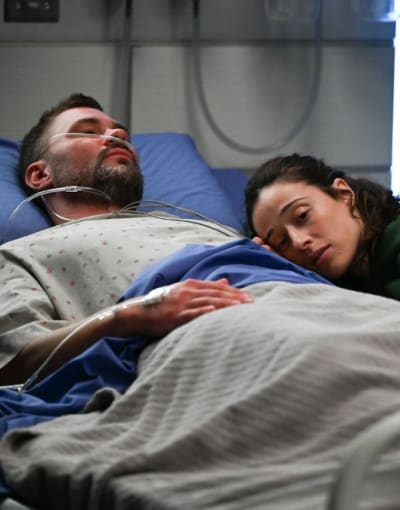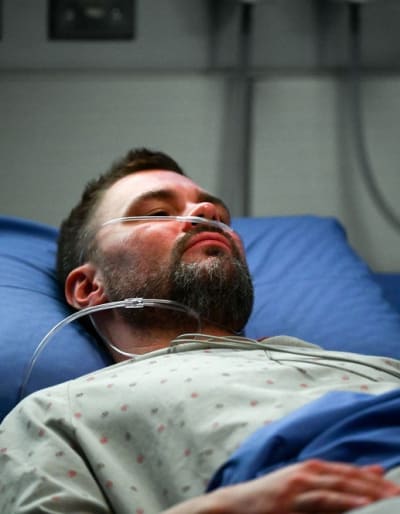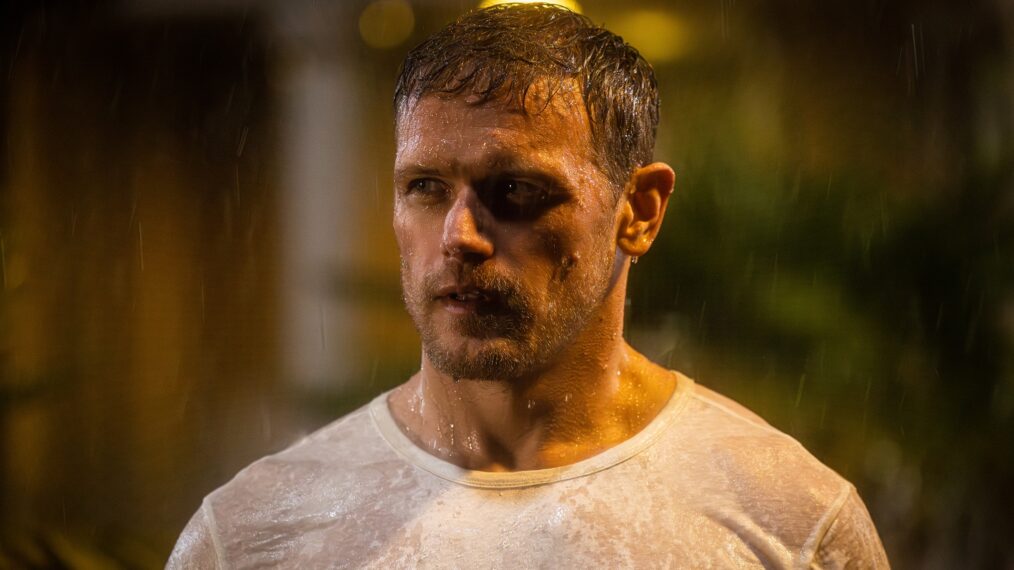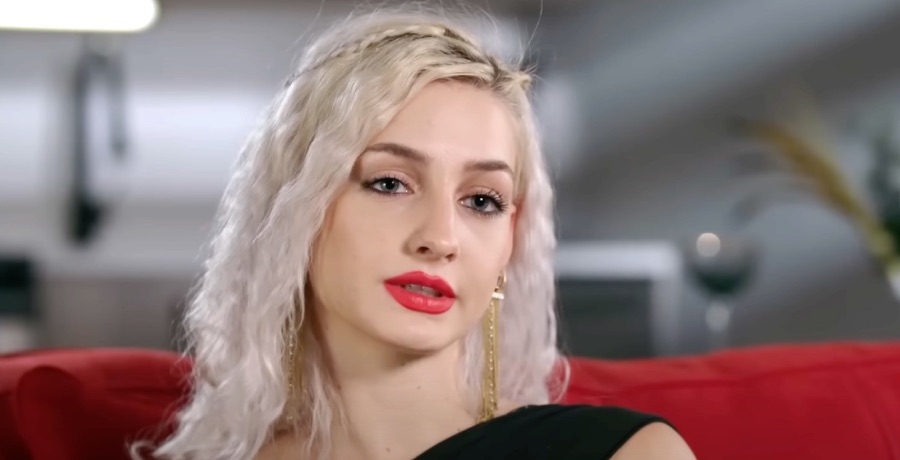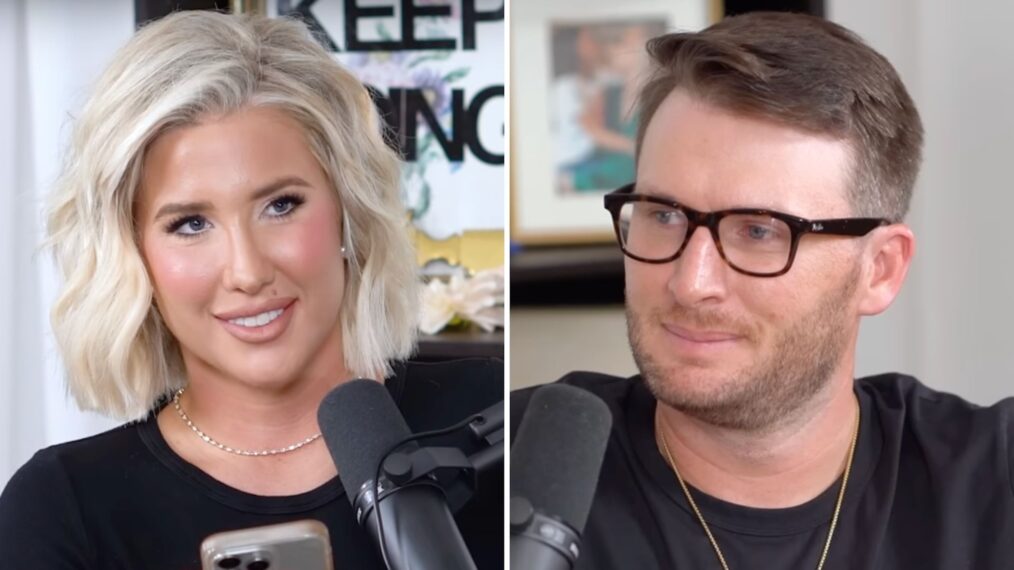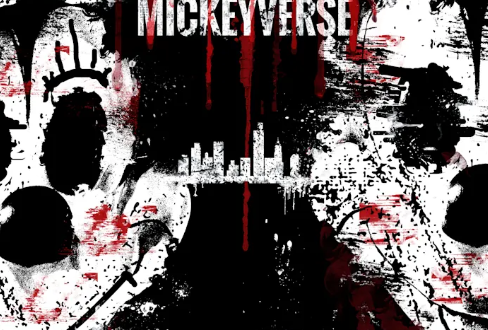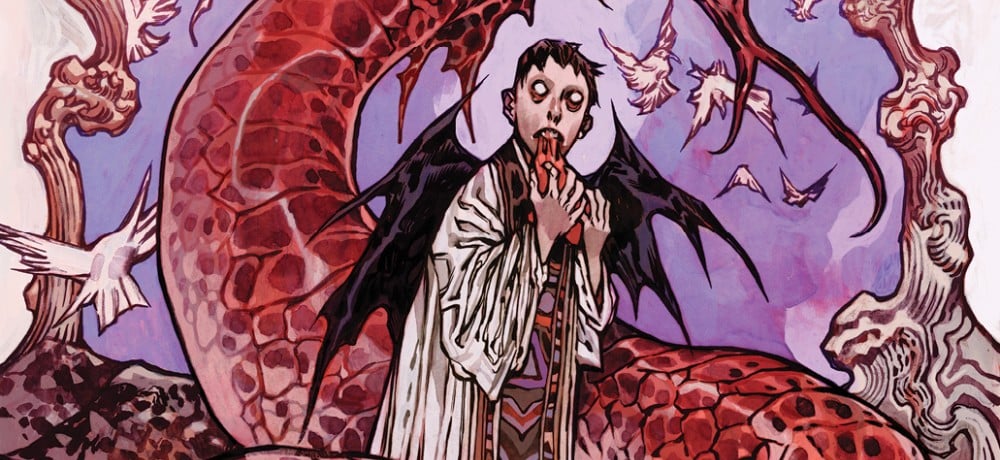I don’t even know where to begin with unpacking that season finale.
To say Chicago PD Season 10 Episode 22 was intense would be an understatement. Keeping with the momentum built for the One Chicago season finales, they came guns blazing as we dove back into this white supremacist case.
And by the end of the hour, we are absolutely and truly left in the dark about whether or not Ruzek will survive that gunshot to the chest.
Hatred lives here, it’s bred here, and it’s statistically the number one threat to Americans presently, white supremacy.
It’s apt and timely for the series to delve into that a bit, and it’s been a slow burn with them and this case as Ruzek has gone undercover for months and all this season’s Ruzek-centric.
And when he wasn’t immersed in this case, he often disappeared for most of the season. Ruzek’s absence has been noticeable and felt.
In some installments, he’s so far in the background he doesn’t even have lines, and when you factor all of these things with the multiple departures and revolving doors in the Dick Wolf Unievers, it’s worrisome.
We’d love to think that the series wouldn’t lose another main character after the Halstead departure, but everything is so uncertain and unpredictable these days we can’t be sure.
The hour started with an ominous tone, Ruzek’s pillow talk with Burgess revealing a man whose undercover work has taken a severe toll on him.
It took pieces out of him, being around the likes of Beck, the man’s pure hatred always palpable.
One of the most striking moments was seeing Ruzek in Mackyala’s room; he got some comfort and solace in watching her sleep peacefully, a young Black girl who already endured far more than a child should, yet still innocent and hopeful, some of the ugliness of the world still not getting to her yet.
Ruzek: I will move when you tell me what the plan is.
Sam: Did my father tell you to keep me here?
You could sense that being in Mack’s room grounded him, and he’d even spend some time beside her, maybe during the most challenging days, because she was the embodiment of what he was trying to protect.
Ruzek wasn’t rested or well working this case, and his frustration was palpable as it didn’t seem like he was getting anywhere either, and that’s when Sam’s sudden move to leave shifted things.
Whether or not Ruzek let Sam go felt like a crossroads moment in hindsight. That decision to share with her that he was a cop changed everything.
It was all so confusing for him, but he probably didn’t have much choice.
But there was so much that was uncomfortable about this subject matter and how they chose to address it. And the thing is, one can’t decipher if all of it was intentional or simply ironic.
So much of Ruzek’s UC storyline hinged on Sam being this complex victim. When you consider where we started versus ended up, it makes you wonder, did they really spend an obscene amount of time angling for nuance in sympathizing with this woman who was raised to be a white supremacist?
We got a dark look at how hate is bred, stirred, and groomed. It’s a cautionary tale with Callum, uncomfortable in every single way.
But it was hard to stomach how so much of things played out. What we got to some degree, is a picture-perfect example of how white supremacy so often wins.
We saw firsthand how society naturally bends to its will anyway, even when they profess to stop it.
Unsurprisingly, Atwater was the most vocal about the lengths they were going to help Sam in exchange for information on her father.
In the absence of Torres, again, they have to do a better job planning his absences. It’s fine that he can’t be in every single installment, but a finale should have the primary main cast, and his absence was jarring.
But Burgess, a woman who likely is becoming more aware of these things with raising a minority child, expressed her discomfort with giving Samantha full immunity, too.
Despite Samantha’s previous involvement with one of their cases, her affiliation with her father, and how she helped him with his plans, even if it’s potentially unwillingly, she still is partially responsible for a series of hate and drug crimes.
There is no way that she should’ve got off scot-free for everything because she gets to hide behind being afraid of her father.
Chapman appeared out of the ether, Voight enlisting her help despite their newly strained relationship, to negotiate an unprecedented deal with complete immunity for Sam if she gave them all the information on her father and his operations.
And even with this unfathomable deal on the table, Ruzek still had to beg and plead with her actually to take it.
It’s a luxury that many people in her position never get. It’s something that people never get into her position for in the first place.
Samantha isn’t the only single mother with a child. She’s trying to protect or has endured abusive, toxic bonds and family dynamics that led to her entanglement in illegal affairs.
The Criminal justice system and prisons are filled with women like her, mostly poor and women of color. Sam’s fear is not unique, yet we witnessed her afforded a way out and a level of grace that we don’t see too often.
Sam has been written to be this complex character who evokes some level of sympathy despite her upbringing, fear, and complacency.
You aren’t born hateful; it’s grown. I didn’t know that until Cal was born. That’s when it changed. All those roots it just died with him.
Samantha
Ruzek kept trying to save her and extend her all of these lifelines long after it was warranted, and if that’s not some subtle commentary on the race and gender relations at play there, then what is?
Because even with her getting someone killed, killing people, running a drug game with her father, and quietly existing in the racist ideologies he’s implemented, somehow, Samantha is supposed to be this poster child for white woman fragility.
It’s no wonder Atwater was irked.
And the same thing extended to Callum the whole installment through. We’ve seen that Beck had his hooks into this boy and has been grooming him for his entire life.
No one thought to check on this kid and ensure he had no other forms of access to his grandfather while establishing safe houses and things of that nature.
Callum’s access to Beck set off this devastating chain of events. And then he did the absolutely unthinkable, shot Adam in the chest, and left him for dead.
For all the ways in which Ruzek insisted on trying to protect her, Samantha left him bleeding out on the floor, removing his access to dialing for help, and didn’t even make a call herself.
And despite all that, we still had Ruzek trying to honor some promise he made to this woman, one in which he was willing to die.
Sam, I will not let Richard get to that boy. You don’t have to trust anything I said, but you can trust that I won’t let him get your child.
Ruzek
How much bloodshed and terrible things needed to happen to protect a woman complicit in domestic terrorism and a clusterf*ck of felonies and a budding white supremacist who attempted murder?
It’s maddening when you think about the things that Samantha and Callum got away with doing and still actively had some people trying to extend them grace, protect, and reason with them.
Because the disproportionate response to and treatment of them is vast compared to those who are poorer or browner, yes?
We had at least half of intelligence fighting for Callum’s potential, attempting to salvage what’s left of him to save him from becoming like his grandfather.
We were supposed to think about saving this kid and hoping that it wasn’t too late, that his future could be brighter, that he could be deprogrammed somehow, or unlearn all these terrible things.
It was as if “saving Callum” could mean we were eradicating white supremacy. But I wish there was more thought about the Makaylas or all those kids at those elementary schools who Beck intended to blow up.
Beck wanted to kill hundreds of Black and Brown kids for a “better future,” we spent most of the hour watching this unit try to save one white kid with supremacist views for a better future, essentially failing anyway.
Callum is alive, and now, his hatred is even more pronounced because he watched Atwater shoot his grandfather. The evil glare he gave him was enough to give you chills.
But even that was a brutal scene to process. We spent significant time with Voight trying to reason with Beck and get him to let the kid go. Burgess was trying to hold Sam back and keep her and Ruzek’s promise.
So much energy was spent on saving, protecting, and not further traumatizing this kid at the expense of everything else. It felt like they could’ve had a shot right out of the gate, and it was annoying that Atwater had to be the one to take the shot at all.
Ironically, on a case dealing with white supremacy and stopping a domestic attack on Black elementary kids, Kevin was one of the only ones not getting all emotional about it and willing to get things done.
Atwater was so damn badass the entire installment. I loved when he breached the farmhouse. The sequence of these officers we’ve never seen before rolling in ten and 12 deep at these locations was AWESOME.
Random newbies busting down doors and flying down hallways arresting people was great. Hailey’s takedown of that one bad guy was badass.
Kevin exchanging that look with the random fellow Black officer was such a moment. At this point, I’d watch a side episode featuring all of these other background characters who kicked butt in this installment.
The explosion was beyond nerve-wracking, and I was relieved that Atwater was okay.
But then he did all of this to take Beck down, and you could sense his frustration that it felt like we were tiptoeing around the important things.
I was so thrilled when he took that shot and killed Beck. It was long overdue, and someone needed to do it. It was also a kickass Kevin moment that will live in my head rent-free until the season returns.
My grandpa’s trying to change the world, and you’re trying to stop him.
Callum
The framing and everything were fantastic, and kudos to the show’s director and DOP because they were phenomenal during this installment.
But it felt like all this work and effort went into preserving Callum and minimizing and trying to prevent a traumatic life while someone like Mack suffered.
We know that little girl has been through hell and back a million times. And now, after she’s found some stability and happiness, her dad is in the hospital, fighting for his life.
He’s clinging to life because of his efforts to save another kid who probably couldn’t be saved.
The frustrating thing about the closing scene with Callum is the implication that because Kevin killed Beck, Callum will fully descend into hatred and racism.
It puts the onus on Kevin pulling the trigger, initiating this kid’s hatred and whatever other horrible things he does from this point forward.
It’s treated as if this action from this Black man lit the match that caught on all the kindling Beck sprinkled down. But Callum would’ve been exactly what he was anyway.
He was already deep into his grandfather’s idealogy. Beck already had his clutches on this boy, and things would’ve gotten worse.
Callum was already heading down an inevitable road for him, which made this fixation on saving him so irritating.
And she wasn’t doing any better with Callum for all of Samantha’s talk. Her extent of keeping her son from becoming like her father was throwing out memorabilia whenever she found it.
She wasn’t actively being non-racist; she just wasn’t overtly being racist. She wasn’t teaching her son anything to counteract or uproot what her father instilled in Callum.
She was passive in all that, and her inaction, even if she and Callum managed to get away, wouldn’t have helped him unlearn what he did.
It was hard to view her as any sympathetic victim in that regard even before she left Ruzek bleeding out on the floor.
It’s hard to relate to her being this mother who wants to protect her child when that child is headed down a disturbing pathway. What about the mothers who want to protect their children from the Callums of the world?
Sam was active in her son’s indoctrination, just as Richard was. She sat on the sidelines and let it happen, and she protected Callum every bit as much as she did Richard.
And this entire case, particularly this finale, showcased how white supremacy thrives, and injustice can prevail. Even the Intelligence Unit inadvertently played into it despite the genuine attempts to stop it.
Words cannot describe how devastating it is that Ruzek got shot. He’s finally been at this perfect point in his life, so naturally, it had to come apart somehow.
It’s just so bleak, and it’s become the pattern for finales and such this season, everything veering towards darkness, trauma, and death.
It’s made all the worse knowing that with the Writer’s Strike, it’s a chance we won’t have any answers until next year.
And that’s what made the ending so clumsy and aggravating.
The last we see Ruzek, he’s getting rushed to the hospital, and his last words to Kim are about protecting the kid who shot him.
We don’t revisit him in any capacity, not even a glimpse of Kim by his bedside as he recovers from surgery or him in surgery at all.
We got a still of her at his bedside, but for some reason, it must’ve been a scene that was cut out. But why? It would’ve been the ideal parting shot, hitting home that one of our own’s life hung in the balance.
A parting shot of Kim at his bedside would’ve hit that emotional note. Even a shot of Atwater in the bullpen staring at Ruzek’s desk, clearing the whiteboard, or having a drink would’ve been something.
Ruzek getting shot has far-reaching effects on those who love him the most. It would be nice to see that. They did some chilling work by drawing a few parallels to when Kim got shot. We also got to see how her work in therapy has helped her as she handled the situation well and talked Ruzek through it too.
Paddy Flueger delivered a strong performance yet again.
But we got that inexplicable parting shot of Voight with Chapman having a drink. It implied that Voight was on the verge of experiencing another loss.
But he generally was an odd choice to focus on at the end.
And we have yet to get an update about Ruzek or know anything about his state. Perhaps the one thing that came from all of this is that if the timelines lined up, Trudy wouldn’t have been so normal if Mouch had died by the end of Chicago Fire Season 11 Episode 22.
It was an intense finale to cap an interesting season with many twists and unexpected developments.
But if Ruzek dies, we riot!
Over to you, Chicago PD Fanatics.
How do you feel about the Beck case and how it was resolved? Will Ruzek survive?
How badass was Kevin? Did you miss Torres? Sound off below!
You can watch Chicago PD online here via TV Fanatic.
Jasmine Blu is a senior staff writer for TV Fanatic. She is an insomniac who spends late nights and early mornings binge-watching way too many shows and binge-drinking way too much tea. Her eclectic taste makes her an unpredictable viewer with an appreciation for complex characters, diverse representation, dynamic duos, compelling stories, and guilty pleasures. You’ll definitely find her obsessively live-tweeting, waxing poetic, and chatting up fellow Fanatics and readers. Follow her on Twitter.

